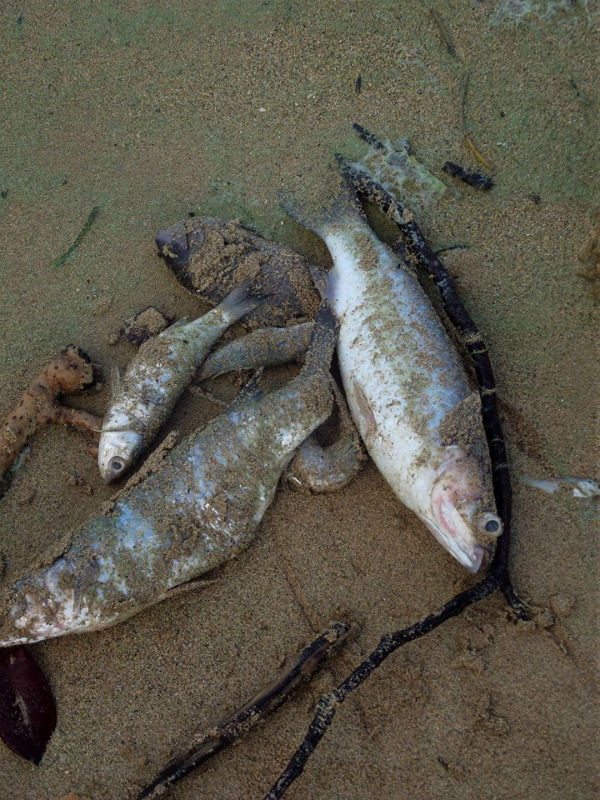A strong rotten egg smell had locals of Neiafutahi in Vavaʻu crying foul as investigators scrambled to determine what caused the sea at the village’s beach turned blood red this week.
The sea at Neiafutahi beach turned red on Sunday and the colour remained until yesterday before it turned green and muddy followed by a fish die-off.
Locals were warned not to eat fish from the sea area and to keep away from the scene because of the odour while a geologist at Tonga’s Ministry of Natural Resources said they found more similar red blood seas in other sea areas of Vavaʻu.

Various unofficial theories have been proposed to explain why the sea changed its ocean colour but some believed it was caused by an algal bloom – “a rapid increase or accumulation in the population of algae (typically microscopic) in an aquatic system”.
Taniela Kula, the Deputy Secretary of Natural Resources and Geologist said they have yet to determine the cause of the red blood sea and how it can be linked to the fish die-off but investigation was continuing and they would release a statement soon.
He said the geologist in Vava’u has reported sightings of more red blood seas in other areas in the islands.
The smell was reported as far away as central Neiafu, the capital of Vavaʻu.
A local broadcaster Manu Tapueluelu was at the scene yesterday and she commented on her Facebook page and said: “…Ugly Smells still going through Loto Neiafu right now which is sooo disturbing,message is ‘stay away from eating seafood,fish etc etc for awhile now people”.
